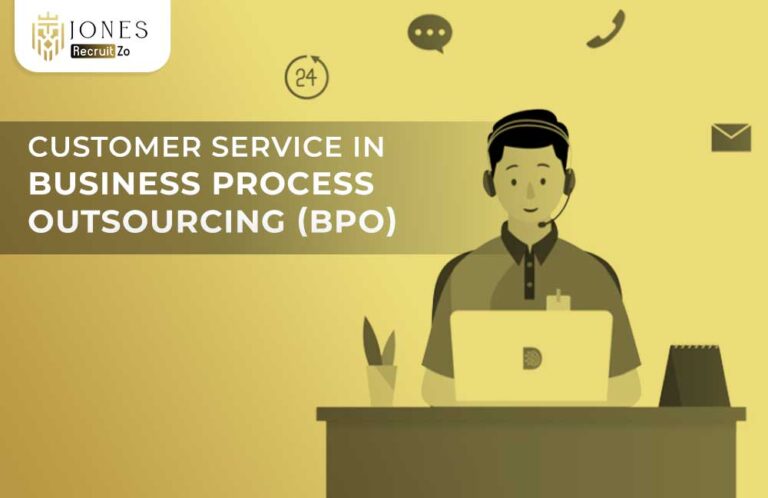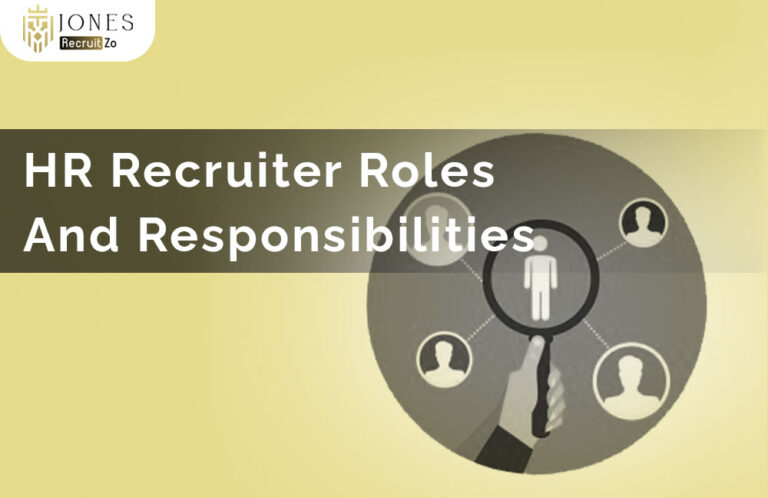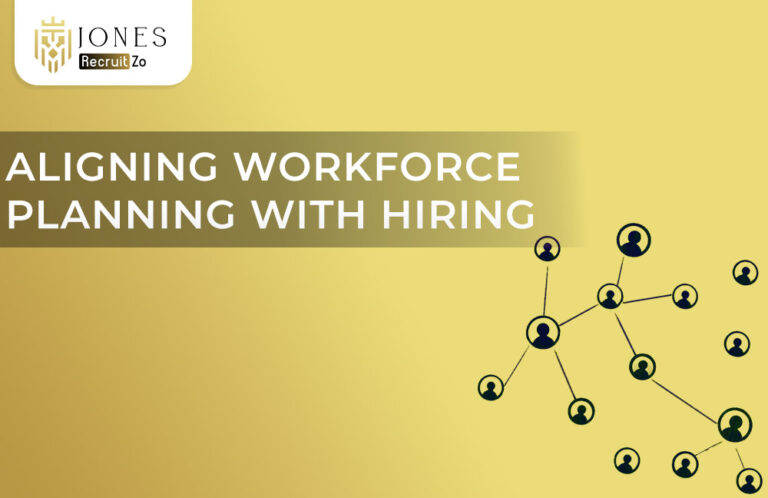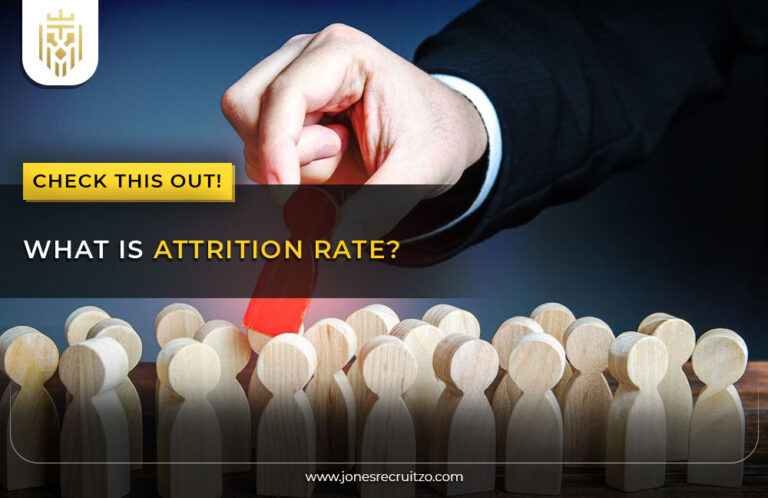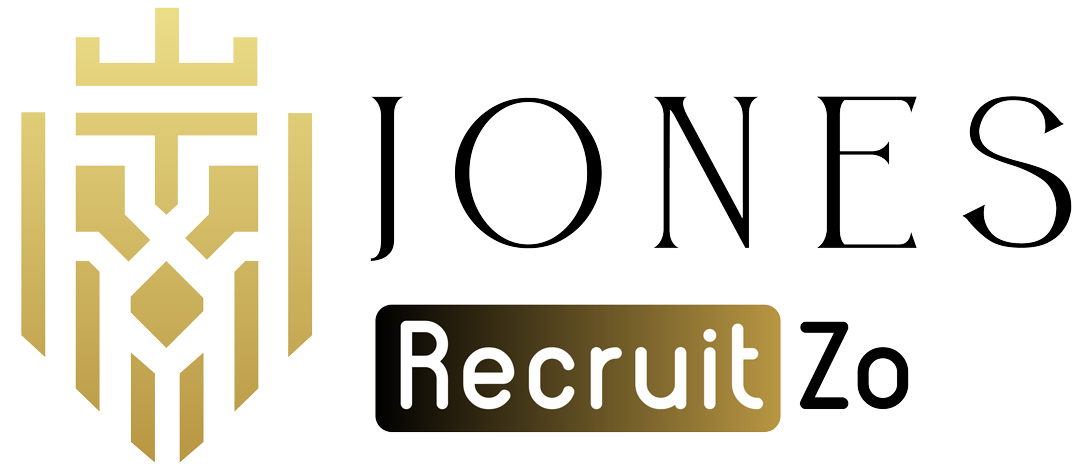Key Insights
Roles and Responsibilities of HR Recruiter
The roles and responsibilities of an HR recruiter include managing the entire hiring cycle from sourcing to onboarding, ensuring that the organisation acquires the right talent for the right role.
Types of HR Recruiter
The types of HR recruiters vary based on organisational needs, with some working as in-house employees handling internal recruitment and others as external professionals or agency partners providing specialised hiring support.
Skills Required for an HR Recruiter
The skills required for an HR recruiter include strong communication, organisational abilities, networking expertise, negotiation skills, and analytical thinking, all of which are essential to succeed in the recruitment process.
Who is an HR Recruiter?
An HR recruiter is the professional who is responsible for handling all the stages of the hiring process in an organisation. A recruiter works as the link between the company and job seekers, helping to place the best candidates in the appropriate positions. In addition to filling positions, recruiters also assist with strategic workforce planning, employer branding, and sustaining a healthy talent pipeline for the long-term needs of the organisation.
Types of HR Recruiters
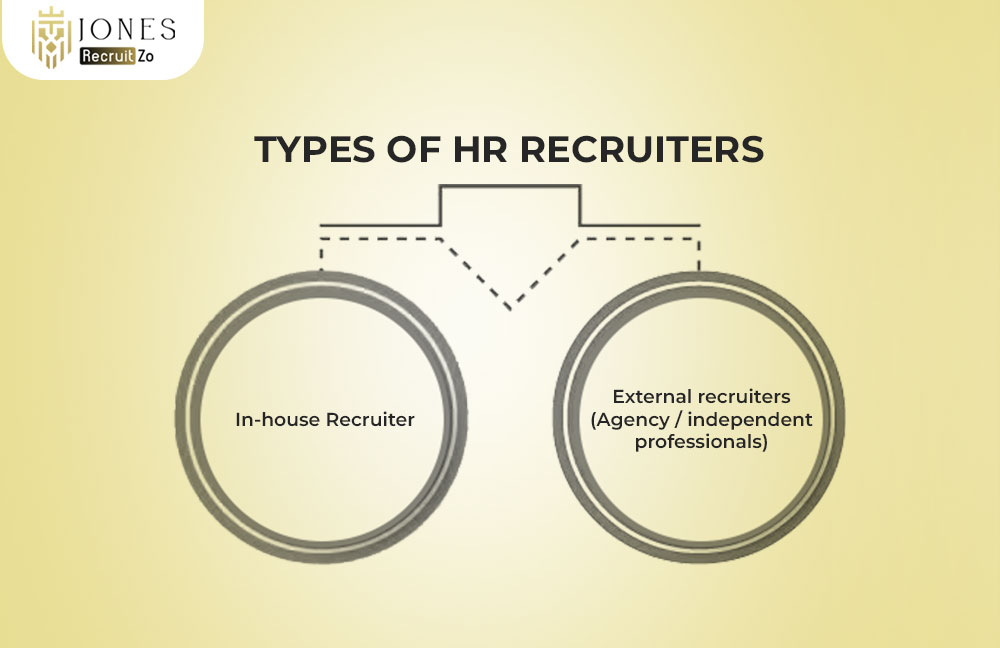
Recruiters can work directly within a company or operate externally through agencies or independent services. Each type serves a unique purpose, depending on the hiring needs and organisational structure.
In-house Recruiter
Internal recruiters are company employees who focus on filling positions within their own organisation. Their intimate knowledge of the organisation’s culture, policies, and human resource requirements enables them to efficiently recruit suitable candidates who align with the organisation’s objectives.
External recruiters (agency / independent professionals)
Independent consultants or agencies function as external recruiters. Their services are especially useful when companies seek to hire in bulk or fill specialised roles. Working with a wide range of contacts, they are able to offer valuable assistance in talent acquisition.
HR Recruiter Roles And Responsibilities
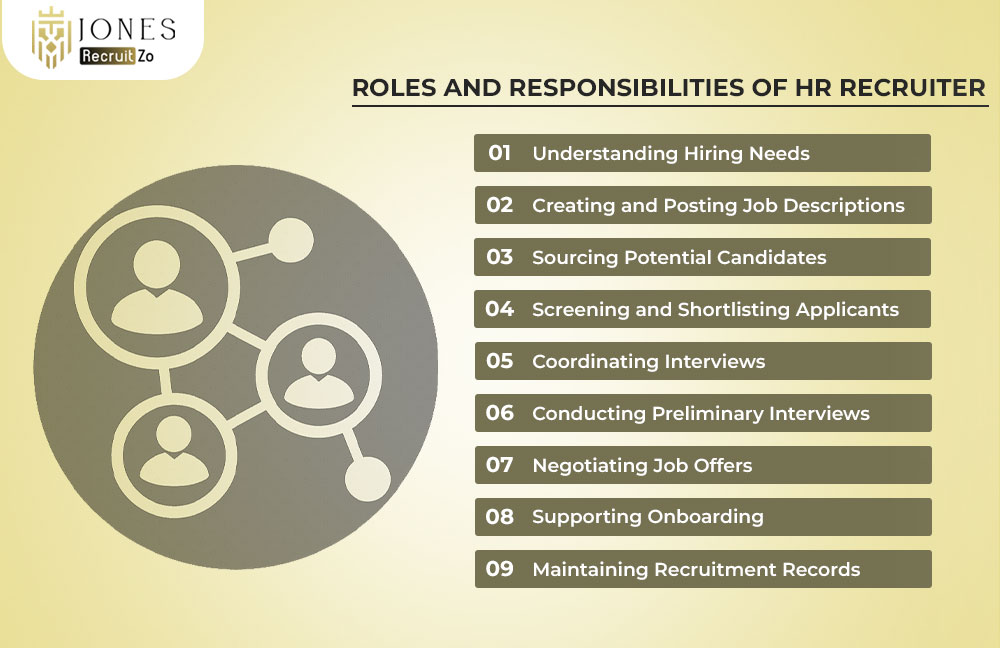
The role of an HR recruiter goes beyond simply hiring candidates. They are responsible for building effective hiring strategies, ensuring smooth candidate experiences, and supporting organisational growth through strong recruitment practices.
Understanding Hiring Needs
Recruiters work with hiring managers to fully develop the requirements for a position, including the job expectations, team dynamics, and skills needed for a particular role.
Creating and Posting Job Descriptions
One of the main duties of the recruiter is writing job descriptions. The recruiter makes sure the descriptions are an accurate representation of the positions and attract the fitting candidates for various job boards and platforms.
Sourcing Potential Candidates
Recruiters look for qualified candidates using job boards, social media, and professional networks, as well as through referrals. Their objective is to find candidates who are qualified in terms of skills and who will fit the organisation’s culture.
Screening and Shortlisting Applicants
The recruiter is responsible for the initial screening of the applications, resumes, and profiles to create a shortlist of candidates that best fit the job description. This safeguards the hiring managers’ time and increases the efficiency of the recruitment process by ensuring that only the candidates with the minimum qualifications proceed to the next steps.
Coordinating Interviews
HR recruiters manage the scheduling of interviews between candidates and hiring teams, ensuring that availability is aligned. They also handle all communication and logistics, such as follow-ups, to keep the process seamless.
Conducting Preliminary Interviews
Recruiters conduct the first round of interviews, usually over the phone or via video, to gauge candidates’ qualifications and suitability. This preliminary assessment ensures that only the most appropriate candidates proceed to face the hiring managers or technical interview panels.
Negotiating Job Offers
Recruiters handle the discussions around salary, benefits, and employment terms with candidates. Through effective negotiations, they are able to meet the candidates’ expectations while adhering to budgets set by the organisation.
Supporting Onboarding
Recruiters facilitate the hiring process of selected candidates into the company. They coordinate with the HR teams to ensure there is a smooth onboarding process and that new employees are well received and appropriately prepared for their new roles.
Maintaining Recruitment Records
Recruiters manage the capture of candidate details, recruitment statistics, and the results of the hiring process. Such documentation is necessary for the refinement of hiring practices and adherence to the organisation’s policies and statutory requirements.
Skills Required for an HR Recruiter
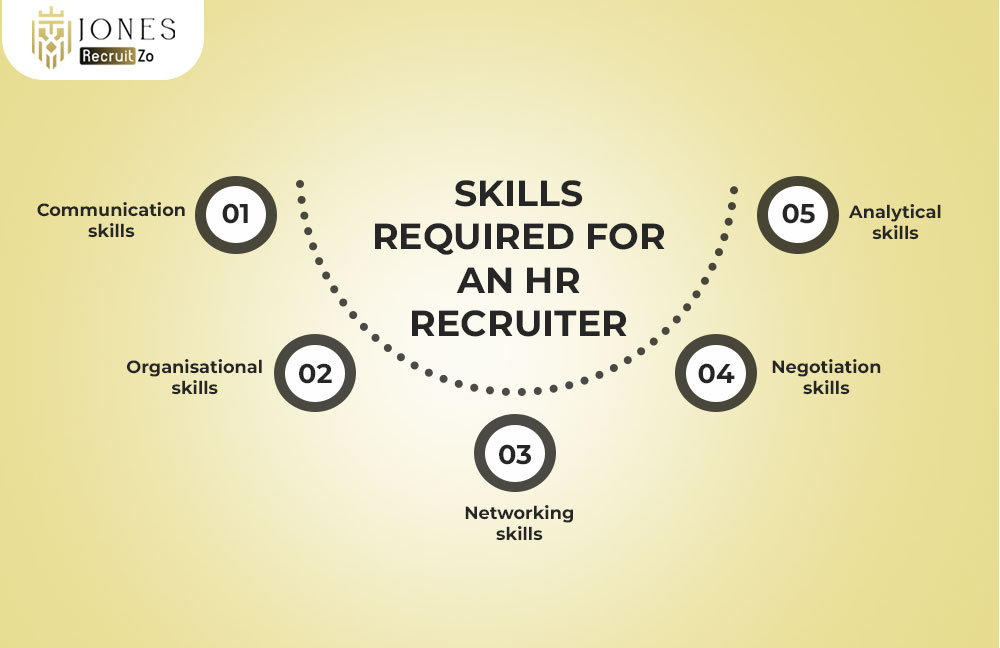
An effective recruiter needs a blend of interpersonal, analytical, and organisational skills. These abilities help them identify the right talent while ensuring a positive hiring experience for candidates.
Communication skills
Recruiters coordinate with hiring managers and candidates and thus require strong verbal and written skills. Effective communication promotes clarity, trust, and transparency during the recruitment cycle.
Organisational skills
Good organisational skills are essential to effective time management and prioritising tasks. Such skills help maintain structure and professionalism during the recruitment process and deadlines.
Networking skills
Recruiters need to build and nurture professional relationships. This skill allows them to source potential candidates and keep abreast of industry developments.
Negotiation skills
With a blend of tact, self-assurance, and the ability to resolve differences, recruiters must engage in job offer negotiations to the advantage of both the candidate and the company.
Analytical skills
Recruiters require insights and data to evaluate recruitment effectiveness and adjust strategies. Assessing hiring patterns, monitoring candidate progress, and refining future processes all benefit from analytical skills.
FAQs
1) What are the key HR recruiter roles and responsibilities?
These involve carrying out initial research to identify potential candidates, managing and evaluating incoming applications, executing interviews, helping to arrange the interviews, and assisting with the orientation.
2) What are the skills required for a recruiter?
They revolve around interacting with others, planning activities, establishing connections, bargaining, and reasoning.
3) What are the types of HR recruiters?
Primarily, there are two categories: internal recruiters who function inside a company and external recruiters who work through firms or on their own.
4) What is the difference between an in-house recruiter and an agency recruiter?
Agency recruiters deal with many clients and provide access to larger pools of candidates, while in-house recruiters dedicate their efforts to meeting their single employer’s recruitment objectives.




